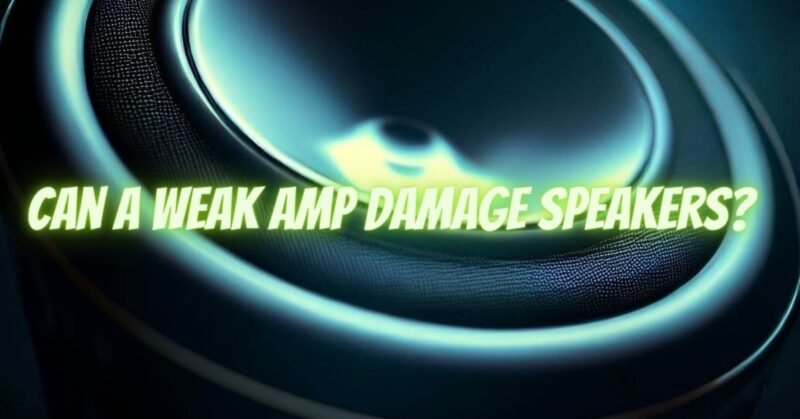The relationship between amplifiers and speakers is crucial in achieving optimal audio performance. One common concern among musicians and audio enthusiasts is whether a weak amplifier can potentially damage speakers. In this article, we will explore the dynamics between amplifiers and speakers, addressing the question of whether a weak amp can harm your precious speaker components.
Understanding Amplifier Power and Speaker Ratings:
- Power Matching: Amplifiers and speakers have power ratings that should ideally be matched to ensure proper performance and prevent damage. The power rating of an amplifier refers to its output capabilities, typically measured in watts, while speaker power handling is the amount of power a speaker can handle without distortion or damage.
- Underpowering: Underpowering occurs when the amplifier’s power output is lower than the speaker’s power handling capacity. Contrary to popular belief, underpowering alone does not typically damage speakers. However, it can result in unsatisfactory sound quality and potential issues when pushing the system to its limits. Underpowered amplifiers may struggle to reproduce low frequencies or drive speakers to their full potential, leading to distortion or speaker cone excursion limitations.
- Clipping and Distortion: Clipping is a phenomenon that occurs when an amplifier is pushed beyond its limits, resulting in distorted waveforms. Excessive clipping can introduce high-energy signals that may damage speakers. Weak amplifiers may clip more readily when pushed to their maximum output, potentially posing a risk to speaker health if clipping occurs frequently and for extended periods.
Protecting Speaker Health:
- Speaker Ratings: It is crucial to match the power handling capabilities of your speakers to the output power of your amplifier. Consult the specifications provided by the manufacturers to ensure compatibility. Ideally, the amplifier’s power output should be within the speaker’s recommended power range for optimal performance and longevity.
- Speaker Protection: Some amplifiers and speaker systems incorporate protective mechanisms, such as limiters and built-in circuitry, to prevent excessive power or distortion from reaching the speakers. These features can help safeguard speakers from potential damage caused by overpowering or clipping.
- Proper Gain Staging: Setting appropriate gain levels on your amplifier is essential. Adjusting the gain control ensures the input signal is properly matched to the amplifier’s output, reducing the risk of distortion and excessive clipping. Proper gain staging allows the amplifier to deliver a clean signal to the speakers, promoting their longevity.
Conclusion:
While a weak amplifier alone is unlikely to cause immediate damage to speakers, it can result in unsatisfactory sound quality and limited performance capabilities. Underpowered amplifiers may struggle to provide sufficient power for optimal speaker performance, leading to distortion and potential issues when pushed to their limits. However, it is important to note that excessive clipping, regardless of amplifier power, can pose a risk to speaker health. By matching the power capabilities of your amplifier to the speaker’s power handling, employing proper gain staging, and using amplifier and speaker protection features when available, you can ensure the health and longevity of your valuable speaker components.


